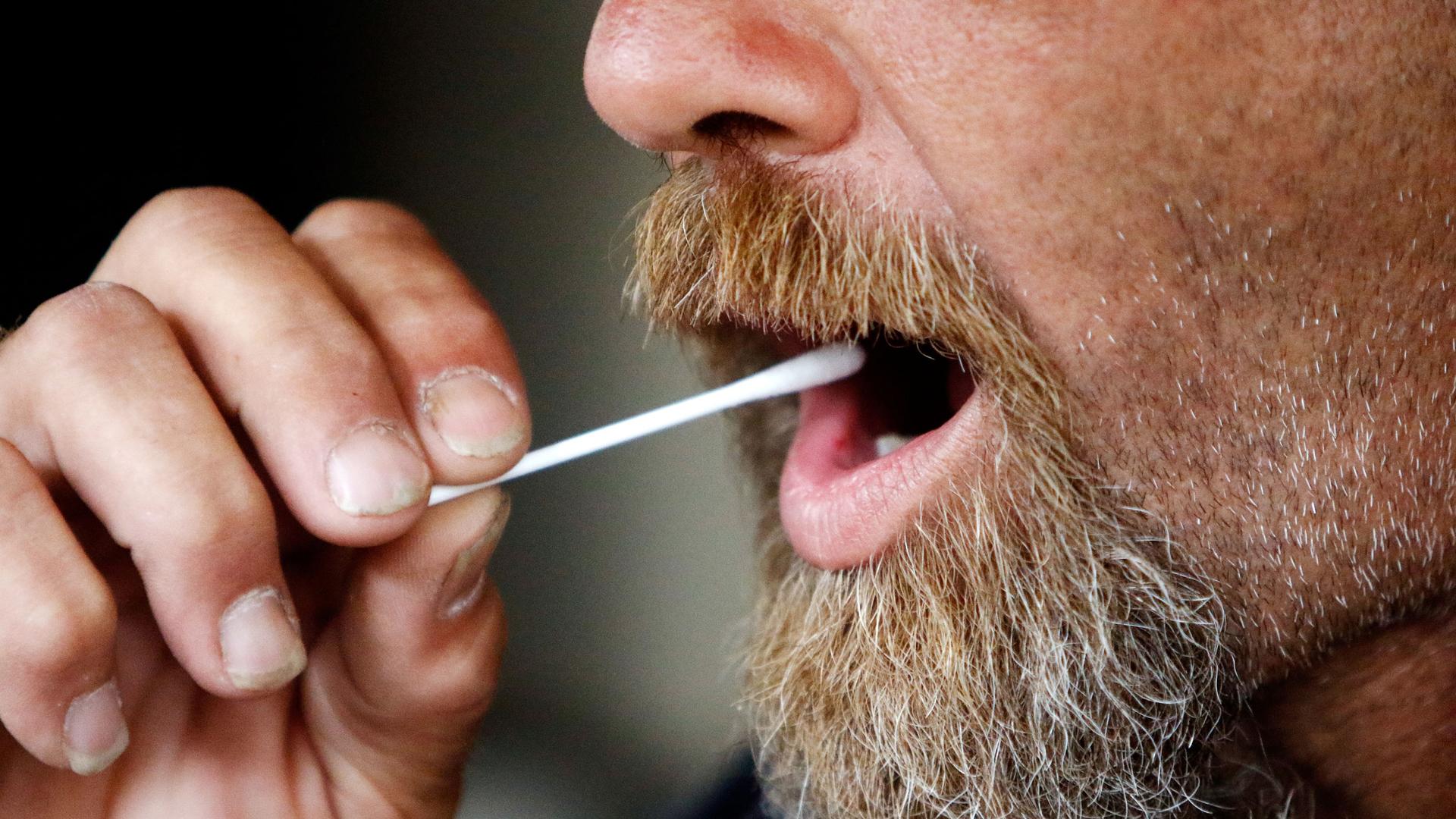Home DNA tests reveal more than we bargained for
Richard Saunders swabs his mouth in Townsend, Tennessee, July 28, 2017.
You may not be one of the more than 30 million people who have spat into a tube and shipped off their saliva or a cheek swab using one of those at-home DNA testing kits sold by companies such as 23andMe and Ancestry, but soon that won’t matter.
We are moving towards a time when the decision to know or ignore your genetic data will no longer be yours alone, according to Libby Copeland, author of “The Lost Family: How DNA Testing Is Upending Who We Are.”
“You don’t have the choice anymore increasingly, of whether or not you opt in or not,” explained Copeland. “You are opted in by dint of the fact that people have made this decision for you. They bought [the kit] as a Christmas gift for their sister, and their sister tested. And that sister is your aunt, and that’s it.”
Related: Immigration expert: Trump DNA collection plan is ‘waste of time’
We are only just beginning to grapple with the consequences of the commercialization of our genes through home genetic testing. There was an inkling of where things were headed back in the spring of 2018 when authorities in Sacramento County announced that they had arrested Joseph James DeAngelo, the man they believed to be the infamous Golden State Killer. The police were able to track down DeAngelo and identify him because of DNA data uploaded to a free online genealogy service by one of his distant relatives.
Since DeAngelo’s arrest, investigators around the country have used similar techniques to solve more cold cases — techniques that have privacy experts worried. There is a lot that you can find out about a person from their genetic information. Leading genetic testing companies do have measures in place to protect their users’ identities, but there are many open questions about who will own, have access to, or be able to control our genetic data in the years to come, according to Copeland. Could that genetic information eventually be shared or sold to a third party, or could it be hacked and made public?
Related: A DNA test connected two distant cousins — and filled out a family history that slavery erased
There are also implications for the world of private health insurance because DNA results can include sensitive details about potential medical risks. Copeland said it is not difficult to imagine a time when your health insurer finds out that you or a family member has obtained the results of a home genetic test and demands that you share that information with them.
“If you don’t give them [it], that could be considered fraud. And if you do give them [it], that could potentially impact certain types of insurance,” she explained. “It hasn’t happened yet, but it’s something that people worry about.”
There is federal legislation in place to protect people against genetic discrimination, but it has some loopholes, which is a concern for legal and privacy scholars, according to Copeland.
The Pentagon is worried too. Last year it warned service members about the risks of using commercial genetic tests, including potentially negative consequences for their careers and the security of the military.
Despite the objections of privacy experts, nobody seems to be in a hurry to regulate the wild west of commercial genetic testing at either the state or federal level, and customers are not overly concerned either, said Copeland.
“The average consumer doesn’t seem to be clamoring to be finding out less or to be more protected from their information,” she explained.
It is early days though — and, since it is not unusual for laws to lag behind advances in technology, nobody quite knows what the future might hold when it comes to big data and the unanticipated consequences of genetic genealogy.
Elizabeth Ross is senior producer at Innovation Hub. You can follow her on Twitter: @eross6
